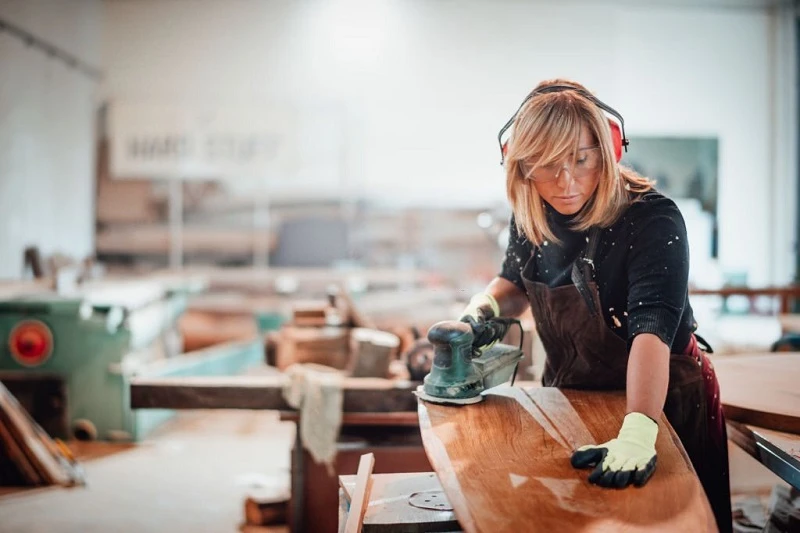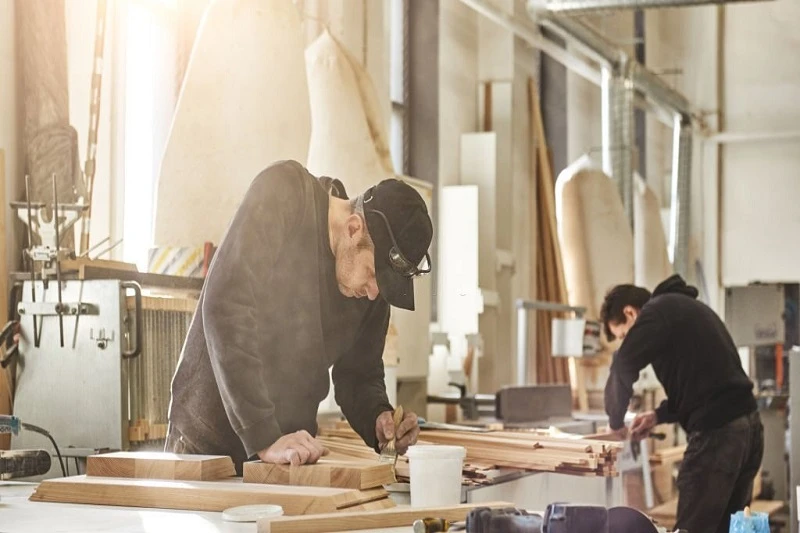Must Have Skills And Responsibilities Of A Cabinet Maker
Cabinet makers construct, fix, and set up cabinets according to clients’ requirements. Cabinet makers are concerned with the finer points of woodworking, such as the selection and use of different construction materials and specialized tools like saws and sanders. These experts may work for a furniture factory, building firm, contracting firm, or for themselves. However, cabinet makers must have some skills to develop to make their reputation in the market.
If you think from the aspect of a client, you will want to hire the best cabinet maker in your area for constructing and installing the cabinets in your kitchen, bathroom, or maybe other places. So, building these skills becomes essential for cabinet makers.
Here in this article, you will know about the work responsibilities and skills of cabinet makers that they must have. It will help you choose the best person for your work. And, it will also help you if you are about to pursue this profession.
The Responsibilities of a Cabinet Maker:
A cabinet maker’s duties and responsibilities are as follows-
- Find the right equipment, supplies, and components for the job
- Making the budget
- Making both stock and personalized cabinet parts
- The key to completing projects on schedule is a well-thought-out plan that they need to make
- Obtaining the necessary materials for each cabinet and putting them together
- Sealing, varnishing, and painting cabinets as needed
- Maintenance tasks include fixing broken parts of returned cabinets
- Verifying that all required finishes have been applied and that the item has been created properly
- Providing advice on how to properly store things upon request
- Putting on the proper garb and adopting the required safety measures
Skills that the best Cabinet Makers must have:
To be successful in their field, cabinet makers must possess the following skills. Adopting these skills will make them a potential for being hired by more and more clients.
- Technical skills:
A person’s technical expertise is the foundation of their profession. Skills in this area range from reading and interpreting blueprints to operating a wide range of machinery and creating designs in specialized software. The technical expertise of a cabinet maker is essential to the industry.
- Careful consideration of every aspect:
Attention to detail is crucial for cabinet makers because customers always want flawless finishes. One example is ensuring the materials are trimmed to the proper size and the final product is defect-free. Paying close attention to detail may also include being careful to replicate the design specifications of a project exactly.
- Able to convey ideas effectively through conversation:
Cabinet makers, like anyone in any other profession, need to be able to communicate effectively. You’ll need to be able to talk to customers, employees, and the rest of the site crew. Understanding clients’ desires are important for providing a satisfactory result just like it is important to teach them about the further maintenance process of the cabinets. You also need communication skills to relay technical details regarding the components and construction procedures you use while making the cabinets.
- Capability to analyze a situation and formulate a workable solution:
When faced with obstacles, cabinet makers use their problem-solving abilities to discover answers or way-outs. If a plank of wood isn’t quite the appropriate size, for instance, they could figure out how to trim it down to size, or they might look for another plank of wood. They employ problem-solving skills to finish a job without the necessary resources or within the client’s budget.
How to Get Started as a Cabinetmaker
A cabinet maker’s education doesn’t have to end with high school. Many people acquire the necessary skills via on-the-job training from more seasoned professionals. Aspiring cabinet makers get instruction in identifying various kinds of wood, the appropriate applications for those woods, taking accurate measures, the operation of relevant equipment, etc. Cabinet makers learn to use both hand-operated and automated equipment and computer-guided tools.
However, formal instruction in a college training program could help aspiring self-employed cabinetmakers since the skills acquired there will enable you to begin taking on customers immediately after graduation.
Conclusion
A cabinet maker’s job is physically hard and demands great inventiveness and creative ability. As day after day more creative ideas are emerging, the job is becoming more challenging. People are always in search of new ideas and the best cabinet makers who can make them for them. So, being up-to-date and upgrading your skill is a smart way if you want to get more contracts in this market.


